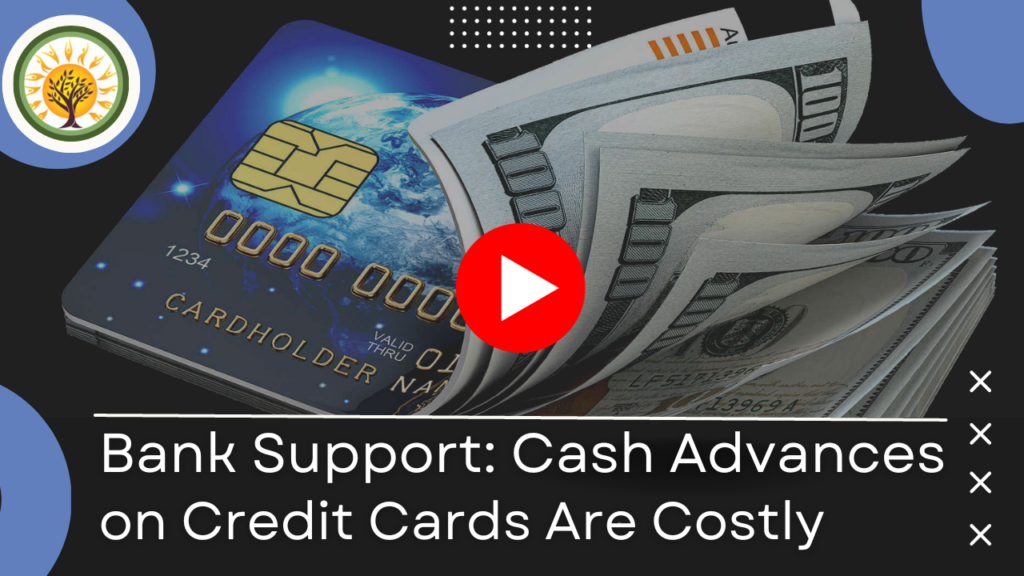Are you interested in maximizing your financial potential? We’ve got you covered. Discover the ins and outs of leveraging banking to build your wealth. Gain valuable insights into the potential drawbacks of obtaining a cash advance on your credit card. Learn about the necessary steps after falling victim to identity theft. Moreover, explore the intricacies of savings bonds and how to redeem them. For any burning banking inquiries, turn to our expert banker, Alex. Connect with Alex at alexexpertbanker@gmail.com for comprehensive guidance and support.
Join us on an enlightening journey towards achieving greater success in banking!
Question: Should I do a cash advance on my credit card?
Asked by: Naomi from Jackson, Tennessee.
Answer: A cash advance on a credit card is a short-term loan that allows the borrower to withdraw cash from an ATM or receive it directly from the bank, using their credit card. It is important to consider various factors before opting for a cash advance. First, most credit card companies charge higher interest rates for cash advances compared to regular purchases. The typical annual percentage rate for a credit card cash advance is 24.99% to 29.99%. Additionally, there is usually no grace period for cash advances, meaning that interest starts accumulating immediately upon withdrawal. In contrast, regular credit card purchases usually have a grace period of at least 21 days before interest charges apply. Moreover, cash advances often incur transactional fees, typically charged as a flat fee or a percentage of the transaction amount, whichever is greater. The flat fee is typically $10, while the percentage ranges from 3% to 5% of the total amount advanced. For example, a $500 cash advance with a 5% transaction fee will cost $25. Due to these high costs, it is advisable to explore alternative ways of borrowing money, such as personal loans or lines of credit, before considering a cash advance with a credit card.
Question: I was a victim of identity theft, what should I do?
Asked by: Paul from Bradley from Bridgeport, Connecticut.
Answer: Identity theft is a grave offense that can happen to anyone. It occurs when a cunning criminal steals personal information and exploits it without consent. This stolen data can be misused to open credit cards, apply for loans, or even commit crimes in the victim’s name. Falling prey to identity theft can be a frightful and overwhelming encounter. However, it’s crucial to remain composed and take prompt action to minimize the damage. Here are some important steps to take if you’ve become a victim of identity theft. First, reach out to the proper authorities, particularly the Federal Trade Commission and local police department. File a report with them and obtain a copy for future reference. Next, get in touch with your bank, credit card companies, and any other financial institutions where you hold accounts. Inform them about the theft and request them to freeze or close any affected accounts. Following that, request a copy of your credit report from the three major credit bureaus (Experian, Equifax, and TransUnion). These reports will reveal any unauthorized accounts or inquiries made under your name. It is also imperative to place a freeze on your credit reports. This will prevent the thief from opening any new loans, lines of credit, or credit cards in your name. If your online accounts have been compromised, change your username and password immediately and ensure they are strong and unique for each account. Lastly, it is crucial to stay vigilant. Be proactive in monitoring your accounts for any signs of suspicious activity and report any questionable behavior promptly.
Question: Where can I redeem a savings bond?
Asked by: Gladys from Lakeland, Florida.
Answer: Savings bonds represent a form of government debt issued by the U.S. Treasury. When an individual purchases a savings bond, they lend money to the government, which in turn repays them over time with a specified interest rate. These bonds are considered safe investments due to them being backed by the U.S. government. While paper bonds are still available, electronic bonds have become more prevalent. Redemption can be completed online, by mail, or at a local bank or credit union. In order to be redeemed, a bond must be at least one year old, and government issued identification is required. A Series EE or I bond can be cashed after one year of issuance, but holding them longer, up to 30 years, will result in more interest being earned. Cashing a bond before five years will cause the forfeiture of three months’ worth of interest. Savings bonds are subject to federal income tax but are exempt from state and local taxes. Utilizing the interest earned from a savings bond for higher education can exempt individuals from declaring it as taxable income. For further information on how to redeem a savings bond: CLICK HERE.
Written by: Alex Sanchez
Important: For your specific questions about banking, contact your banking expert, Alex, at: alexexpertbanker@gmail.com
About our Author: With nearly 20 years of experience in the banking industry, Alex is currently a branch manager with First Interstate Bank. Throughout his career, he has contributed his expertise to renowned financial institutions like Bank of America, US Bank, and Chase. He also has a bachelor’s degree in Business Economics from the University of California, Riverside.
Discover More…
- Unlock the secret to a happier, healthier lifestyle by delving into additional captivating articles on our website at: Smart Strategies for Successful Living.
- Enjoy our uplifting and inspiring videos on our YouTube channel at: CLICK HERE.
- For more resources on Bank Support: CLICK HERE.
Check Out Our Captivating Videos
About Smart Strategies for Successful Living: CLICK HERE.
Your Journey of Self-Discovery: CLICK HERE.
Our YouTube Channel: CLICK HERE.
Bank Support
Next Steps to a Credit Card Default: CLICK HERE.
Selecting A Bank That Works for You: CLICK HERE.
Safeguard Against Smishing: CLICK HERE.
Cash Advances on Credit Cards Are Costly: CLICK HERE.
Keep Your Eye on the Prime Rate: CLICK HERE.









